Fast Business Loans vs. Traditional Loans
Lets Get Started
Fast business loans are comprised of any form of business financing that allows small business owners to get their hands on necessary capital quickly. Usually, fast businesses loans are loans that result in financing within a mater of hours and involve on-line applications. On the other hand, more traditional loans can take weeks or months to get money into your bank account. There are benefits and drawbacks to both classifications for all types of businesses.
Quick business loans offer speedy access to funding but may come with higher interest rates and shorter repayment terms. In contrast, traditional business loans may offer lower interest rates and longer repayment terms, but often require collateral and a more extensive application process.
Understanding Fast Business Loans
Fast business loans are types of financing that provide business owners with quick access to funds. These loans are designed to quickly meet the immediate funding needs of businesses that require capital. These businesses may be looking to seize an opportunity, overcome a cash flow shortfall, or address unexpected expenses.
An auto mechanic shop without a functioning lift isn’t going to work as a company, and a trucking company with broken-down trucks can’t generate revenue. These problems require fast funding solutions.
What Are The Differences?
Fast business loans are typically unsecured, which means that they do not require collateral and are often based on a business’s revenue rather than its credit score. On top of that, they’re often offered by alternative and online lenders.
On the other hand, traditional loans are typically offered by banks, credit unions, or other financial institutions. These loans are generally secured, which means they might require collateral or a personal guarantee, and they are subject to more stringent credit and financial requirements than fast business loans. Traditional loans typically have longer loan applications, require more documentation, and may be subject to additional fees and charges.
While traditional loans may offer lower interest rates and longer repayment terms than fast business loans, they are not always the best option for businesses that need funding quickly. Fast business loans may be more appropriate for businesses that require a smaller amount of funding, have less established credit histories, or need access to capital more quickly.
Benefits of Fast Business Loans
Fast business loans offer several benefits that make them an attractive option for business owners who need quick access to funding. Some of the key benefits of fast business loans include:
Speed: The primary benefit of fast business loans is their speed. Unlike traditional business funding, which can take several weeks or even months to process, fast business loans can be approved and funded in a matter of days or even hours. Funding from The LCF Group can hit your bank account by the next business day, for example (apply here!). This speed can be especially important for businesses needing to seize an opportunity quickly, address unexpected expenses, or manage a shortfall of cash flow.
Convenience: Fast business loans are often available online, which makes them more convenient than traditional loans. Business owners can apply for fast business loans from their computer or mobile device, which saves them time and hassle. Additionally, fast business loans often require less documentation than traditional loans, which makes the application process simpler and more streamlined. You may only need to provide proof of your annual revenue and a few bank statements before you’re approved.
Flexibility: Many fast business loan options can be used for various purposes, making them flexible financing options for businesses. They can be used as working capital, to purchase inventory, cover payroll expenses, invest in marketing, or address any other business need. Fast business loans can also be used by businesses that have less established credit histories or lower credit scores, which can be a challenge with traditional loans.
Unsecured: Many fast business loans are unsecured, which means that they do not require collateral. This benefits business owners who do not have assets to put up as collateral or are not comfortable using personal assets to secure a loan.
Drawbacks of Fast Business Loans
While fast business loans can provide business owners with quick access to funds, there are also potential drawbacks that should be carefully considered before choosing this type of financing. Some of the potential drawbacks of fast business loans include:
Higher interest rates: Fast business loans often have higher interest rates than traditional loans. This is because lenders are taking on more risk by providing financing without collateral or a lengthy application process. As a result, business owners may end up paying more in interest over the life of the loan than they would with a traditional loan.
Shorter repayment terms: Fast business loans often have shorter repayment terms than traditional loans. This means that business owners will need to make larger monthly payments to repay the short-term loan over a shorter period of time. This can put a strain on the business’s cash flow and make it more difficult to manage other expenses.
Limited loan amounts: Fast business loans may not provide enough funding for businesses that require a larger amount of capital. The loan amounts for fast business loans are often lower than those available through traditional loans, which may not be sufficient to meet the business’s needs.
Traditional Loans: A Closer Look
Traditional business loans are a type of financing that businesses can obtain from financial institutions, such as banks and credit unions. Traditional business loans often require collateral, a solid business plan, and a proven revenue and creditworthiness track record.
These loans are typically secured, meaning they require collateral or a personal guarantee, and they often come with lower interest rates and longer repayment terms than fast business loans. Traditional business loans may be used for a variety of purposes, such as purchasing equipment, expanding operations, or hiring staff.
Benefits and Drawbacks of Traditional Small Business Loans
There are many benefits to traditional small business lenders, which is why the industry is as lucrative and long-lasting as it is. Traditional banks certainly have their place. The benefits to working with one of these traditional lenders include:
Lower Interest Rates: Traditional business loans typically have lower interest rates than fast business loans. This is because they are secured, and lenders can rely on collateral or a personal guarantee to mitigate the risk of default. This lower interest rate can lead to significant savings over the life of the loan.
Longer Repayment Terms: Deciding against quick funding often comes with longer repayment terms. Longer repayment terms typically mean lower payments, which can make it easier for businesses to manage their cash flow and meet their financial obligations. Longer repayment terms can also reduce the risk of default and make it more likely that the business will be able to repay the loan.
Larger Loan Amounts: Traditional business loans may offer larger loan amounts than fast business loans. This can be beneficial for businesses that need a significant amount of funding to cover large expenses or make major investments in their operations.
More Options: A traditional loan can include a wide variety of types of funding. You could seek out SBA Loan programs, guaranteed by the U.S. Small Business Administration, or an equipment loan, or a business line of credit. Each of these types of funding provides unique benefits. While some are available from online lenders, the interest rates and terms are often more favorable at traditional banks.
On the other hand, online lenders have created funding options with benefits that can’t be offered by old-school lenders. Some drawbacks to traditional small business financing include:
Strict Eligibility Requirements: Qualifying for traditional business loans can be difficult. Lenders may require a high credit score, a lengthy business history, and extensive financial documentation. This can make it more difficult for businesses with bad credit to qualify for financing. They can also take your personal credit score into account for some traditional loans.
Longer Processing Times: Traditional business loans often have a longer approval process and processing time than fast business loans. The application process may be more extensive, and lenders may require more documentation, which can delay funding.
Need for Collateral: Traditional business loans are typically secured, requiring collateral or a personal guarantee. This can be a challenge for businesses that do not have assets to put up as collateral or business owners who are not comfortable using personal assets to secure a loan. Equipment financing, for example, requires that the newly-purchased equipment serves as collateral.
Which One Is Right For Me?
When deciding between traditional and fast small business loans, business owners should consider several factors to determine which loan type best suits their needs. Some of the key factors to consider include:
Urgency of Funding: A fast business loan may be the best option if the business needs funding urgently. Fast business loans are designed to provide quick access to funding, often within a few days or even hours. In contrast, processing traditional loans may take several weeks or even months.
Amount of Funding Needed: A traditional loan may be the better option if the business requires a larger amount of funding. Traditional loans typically offer higher loan amounts than fast business loans, which can be beneficial for businesses that need significant capital to cover large expenses.
Repayment Terms: Business owners should consider the repayment terms of each type of loan, including the length of the repayment period and the frequency of payments. Fast business loans often have shorter repayment terms and may require more frequent payments, while traditional loans typically have longer repayment terms and may offer more flexibility in the repayment schedule.
Eligibility Requirements: Business owners should consider the eligibility requirements of each type of loan, including minimum credit score, business history, and financial documentation. Fast business loans may have more flexible eligibility requirements than traditional loans, which can be beneficial for businesses with less established credit histories or lower credit scores.
Interest Rates: Business owners should consider the interest rates of each type of loan, as this can impact the total cost of the loan. Traditional loans often offer lower interest rates than fast business loans, but fast business loans may be more competitive than alternative financing options, such as merchant cash advances.
Use of Funds: Business owners should consider how the funds will be used and whether the financing option aligns with their business goals. Fast business loans may be more suitable for short-term needs, such as inventory purchases or cash flow management, while traditional loans may be better for long-term investments, such as equipment purchases or business expansion.
Example Scenarios
The choice between a fast business loan and a traditional business loan depends on each business’s specific needs and circumstances. Here are some examples of businesses that may choose a fast business loan or a traditional business loan:
Businesses that may choose a Fast Business Loan:
A retail business that needs to purchase inventory for a seasonal sale and requires funds quickly to take advantage of the opportunity.
A restaurant that experiences unexpected equipment failure and needs to purchase new equipment to keep operations running.
A small business that needs to cover payroll expenses during a slow sales period and requires quick access to funds to avoid cash flow problems.
A startup that needs to purchase new software or equipment to launch its product quickly and stay ahead of competitors.
A service-based business that requires fast financing to take on new clients and expand its services.
Businesses that may choose a Traditional Business Loan:
A manufacturing business that needs to purchase expensive machinery to expand operations and requires a large amount of funding to cover the costs.
A construction company that needs to finance a long-term project, such as building a new office complex, and requires a longer repayment term to spread out the costs.
A medical practice that needs to purchase expensive medical equipment to improve patient care and requires a loan with a lower interest rate to minimize the cost of borrowing.
A long-standing retail company that requires financing to purchase real estate or to acquire another business.
A well-established business that has a history of good credit and strong financials and can meet the stringent requirements of a traditional business loan.





